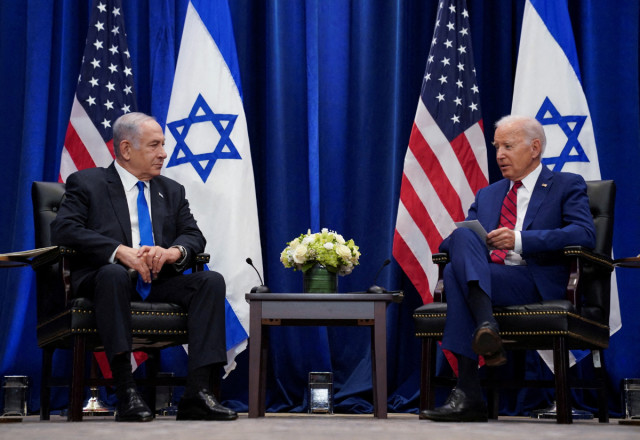President Joe Biden hoped to avert what he perceived to be a humanitarian disaster—a massive ground assault of Rafah—by asking Prime Minister Benjamin Netanyahu to send a delegation of senior Israeli officials to Washington on Monday.
It's unclear if the summit, which is now anticipated to take place early next week, will be able to achieve that goal.
On Tuesday, there were hints that, in spite of the severe warnings that Biden had given to Netanyahu during a 45-minute phone conversation the day before, the Israeli leader was still planning to enter the southern Gaza Strip, even with American encouragement.
That puts Biden in a difficult but familiar position now that he has made his stance on the invasion plain and seems certain that Netanyahu will reject it out of hand.
“Out of respect for the president, we agreed on a way in which they can present us with their ideas, especially on the humanitarian side,” Netanyahu said Tuesday during a speech to the Foreign Affairs and Defense Committee in the Knesset.
“However, I made it as clear as possible to the president that we are determined to complete the elimination of these battalions in Rafah, and there is no way to do this without a ground incursion,” he went on.
The invitation to Israeli officials for talks in Washington comes with certain risks for Biden, depending how Israel decides to proceed. On one hand, he could appear ineffective in the heat of a reelection run if Netanyahu decides to move ahead with a major ground invasion despite the White House’s warnings. On the other, providing Israel with clear alternatives — even if they are rejected — could distance the president from an eventual decision to launch a major offensive.
Some US officials said they were not concerned about the Biden administration assuming liability for a possible operation, since they remain skeptical the two sides will be able to arrive at an agreement at all.
Administration officials have discussed potential responses should an invasion move ahead, and some of Biden’s Democratic allies in Congress have made fresh calls for the White House to consider conditioning military aid to Israel if a Rafah operation proceeds as the president faces intense pressure over his support for Israel from key parts of his coalition.
The Biden-Netanyahu call “helped clear the air” between the two leaders, said a source familiar with the call. It was a “business-like conversation,” the source added, noting that it is always good to talk about working together and what the two sides agree and disagree on. In a sign of continued dialog between the two allies, US Secretary of State Antony Blinken is expected to travel to Israel on Friday, an Israeli official revealed.
The US has been calling on Israel to explain how it intends to protect the estimated 1.4 million Palestinians seeking refuge in southern Gaza before its planned operation into Rafah. So far, the Biden administration says, that plan has not been presented.
“The presumption is that if one exists, they would have showed it to us,” one senior administration official said.




















